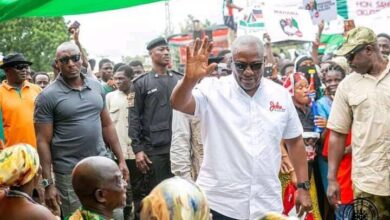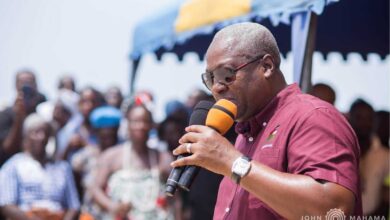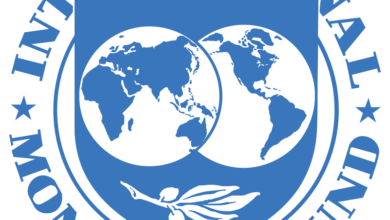The National Democratic Congress (NDC) has addressed key economic issues in its recent manifesto launch. The policy document outlines a comprehensive framework and diverse strategies aimed at tackling the severe economic challenges facing Ghanaians.
Dr. Jonathan Asante Otchere discussed these points on Adekyee Mu Nsem, a morning show on Ahotor 92.3 FM, hosted by Citizen Kofi Owusu in Accra. He praised NDC flagbearer John Dramani Mahama for his policy direction, which has sparked public debate. Dr. Otchere believes that Mahama’s policies reflect a thoughtful approach incorporating input from individuals, groups, and trade unions, fostering a cross-pollination of ideas for effective governance.
Dr. Otchere also highlighted the former president’s emphasis on accountability, noting that this focus was notably absent in the New Patriotic Party’s (NPP) manifesto. He expressed surprise at Dr. Mahamadu Bawumia’s silence on corruption issues that have plagued the current government.
Last Saturday, the NDC presented a manifesto promising hope and a plan to address Ghana’s economic difficulties. The vision outlined includes job creation, justice, good governance, and nationwide prosperity. The document is described as solution-oriented, measurable, and people-centered, with a focus on transparent and effective use of national resources.
The manifesto signifies a new era of transformation for Ghana, building on President John Dramani Mahama’s proven track record in key sectors including health, education, agriculture, infrastructure, and social policies. In his address, Mahama committed to serving Ghana with humility, accountability, fairness, and inclusivity. He pledged to focus on national development and address significant deficits.
Key points from the manifesto include:
Economic Reset for Prosperity:
National Economy Dialogue on a Development Plan
Removal of certain taxes
Alleviating Economic Stress:
Free academic fees for first-year university students
Free tertiary education for people with disabilities
Provision of free sanitary pads for schoolgirls
Uncapping the NHIL
Implementation of free primary health care
Expansion of health infrastructure and recruitment of health professionals
Establishment of a state-of-the-art specialist children’s hospital
Creation of a National Fertility Centre
Development of modern dialysis centers in regional hospitals
Economic Development Initiatives:
Implementation of a 24-hour economy policy
Establishment of a Women Development Bank
National Apprenticeship Program
Free technical and vocational education with support for graduates
Business Development: Tax exemptions for new SMEs
Promotion of a “Made in Ghana” agenda
Commercialization of the Okada business
MO-NE-YO pension scheme for informal sector workers
Launch of the One Million Coders Program
Expansion of the automotive and vehicle assembly sector
Creation of regional agro-industrial zones
Construction of 20 feed processing plants
Establishment of farmers’ service centers across Ghana
Governance and Social Policy:
Reduction of government size to 60 ministers
Aggressive anti-corruption measures: Operation Recover All (ORAL)
Reopening investigations into major unresolved cases
Improvement of free SHS and elimination of the double track system
Implementation of a bed-for-all program in universities
Partnership with private businesses to construct student hostels
Abolishment of Teacher Licensure Exams and introduction of the Teacher ‘Dabr3’ Program
Provision of accommodation in new schools for teachers
Establishment of a new railway system based on a Build and Operate Policy
Creation of mining cooperatives and a Gold Board
Ban on mining licenses in forest reserves
Implementation of the Tree for Life Reforestation Policy and Blue for Life Program.
Story By: Alexander Kukah





